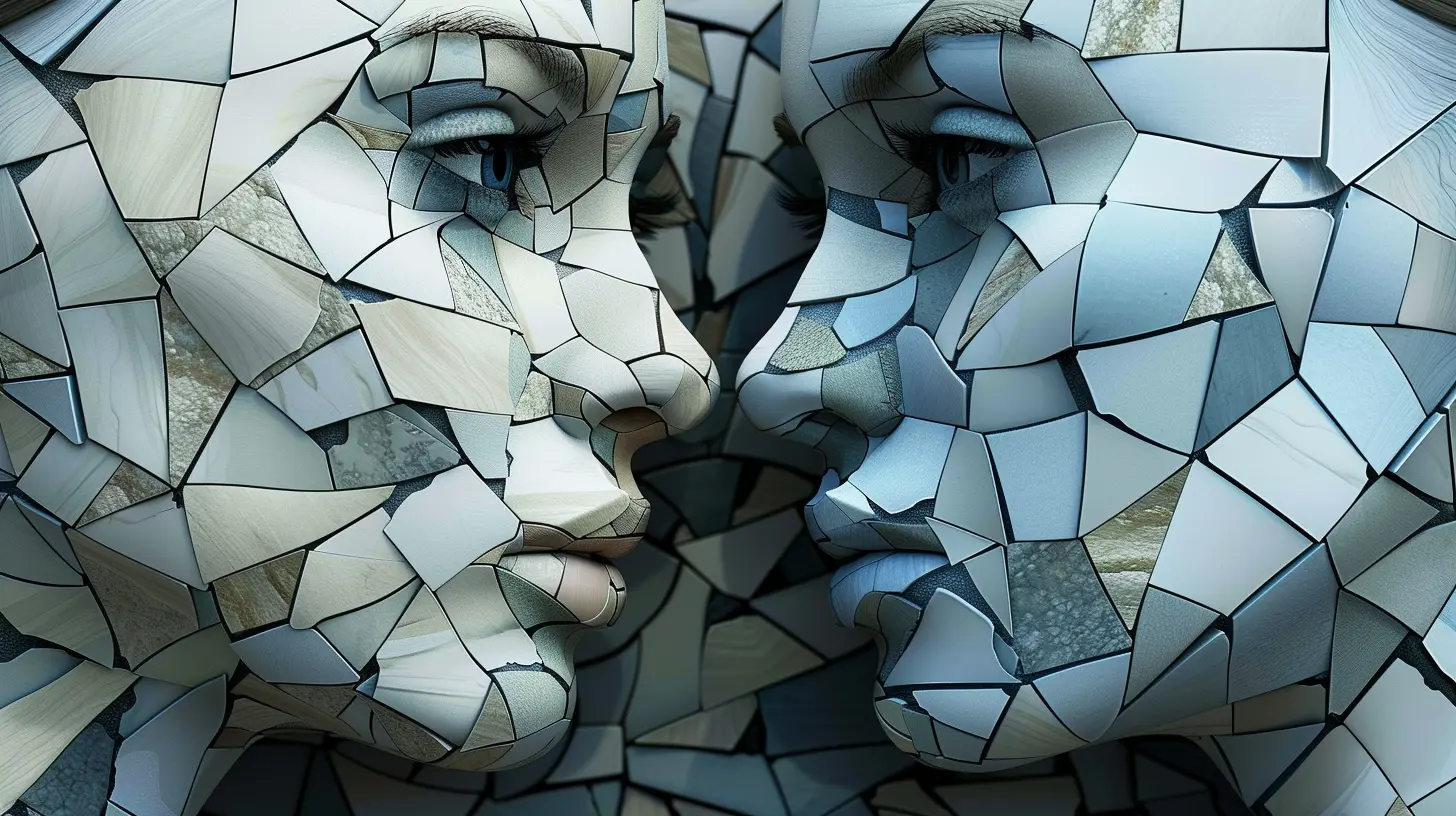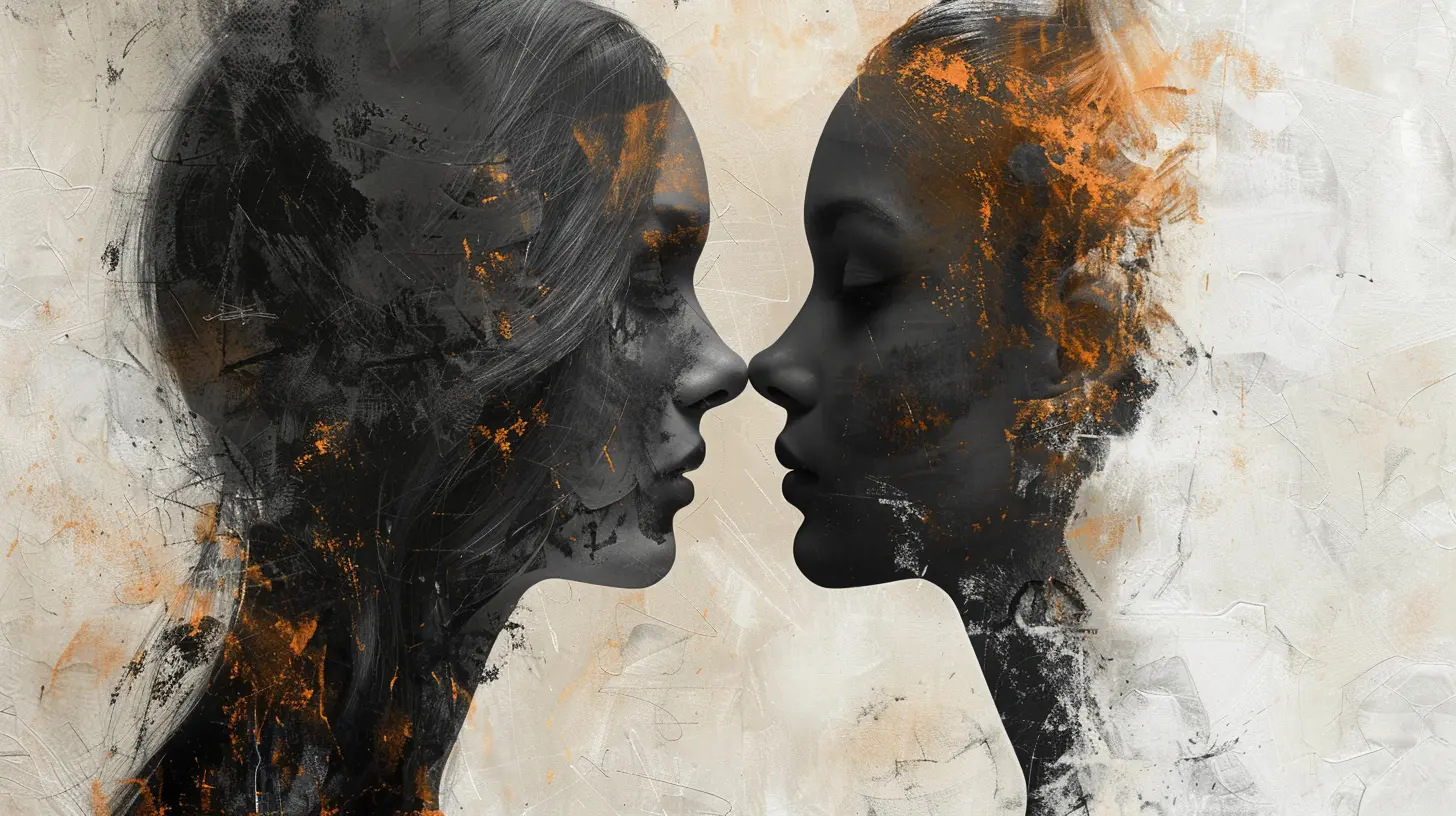The Interplay Between Self-Concept and Social Identity
7 November 2025
Ever caught yourself wondering, “Wait, who even am I?” right after a social event where you tried to blend in like a chameleon at a disco party? You’re not alone. Welcome to the strange, slightly bewildering, and totally fascinating world of self-concept and social identity.
You see, our minds are like those fancy seven-layer cakes. Self-concept is one delicious layer, while social identity is... well, the part that has sprinkles and glitter—because what people see does matter too. But how these two layers interact is where things get juicy.
Let’s dig into how our inner sense of self (who we think we are) dances—sometimes gracefully, sometimes like a dad at a wedding—with how others see us and where we fit in society.
What is Self-Concept? (AKA Who You Think You Are)
Alright, first things first. Self-concept is basically your internal selfie. It’s the mental image you have of yourself. It’s how you describe yourself when no one’s watching, no filters, no hashtags.It includes:
- Your personality traits (Introvert? Overthinker? Netflix binger? Check.)
- Your beliefs and values
- Your past experiences
- Your roles (friend, sibling, aspiring avocado farmer...)
In other words, self-concept is the “Me, Myself, and I” show running 24/7 in your head.
But here's the twist: self-concept isn’t born in a vacuum. It’s shaped and reshaped by everything around you—like a sculpture made of Play-Doh left at a preschool. Enter our next guest: social identity.
Meet Social Identity: The External Mirror
Social identity is how you define yourself in terms of the social groups you belong to.We're talking:
- Ethnicity and nationality
- Gender and sexuality
- Occupation, religion, political affiliation
- Favorite fandom (Yes, being a Swiftie or a hardcore Marvel fan counts. Don’t fight me on this.)
Social identity is like your psychological passport—it shows the clubs you belong to, and you carry it into every social interaction, whether you like it or not.
But here’s where things get spicy: your self-concept often borrows outfits from your social identity. Think of it as raiding your social closet to dress up how you see yourself. 😎
So, How Do These Two Actually Interact?
Glad you asked, hypothetical reader who’s totally invested. The interplay between self-concept and social identity is like a never-ending game of ping-pong—with your brain holding both paddles.Let’s break it down.
1. Social Identity Shapes Self-Concept
When you strongly identify with a group, that group’s norms and values start to seep into your self-concept. It’s like osmosis, but instead of water moving through a membrane, it’s you adopting shared thoughts and behaviors.Example time: Say you’re a passionate environmentalist. Your group identity might influence how you see yourself—"I’m responsible. I care about the planet. I refuse to use plastic straws unless literally dying of thirst."
Boom. Social identity just gave your self-concept a vibe upgrade.
2. Self-Concept Picks Its Favorite Social Identities
But this is a two-way street. Sometimes your inner self—your values, quirks, and interests—guide which social groups you choose to align with in the first place.If you’re an artsy, introverted night owl who writes poetry about tacos, you're probably not going to fully vibe in a high-octane sports fan group. Your self-concept gently nudges you toward identities that feel like home.
So, it’s not just about being shaped—it’s also about choosing. Like a DJ mixing your identity playlist.
The Identity Crisis: When Self-Concept and Social Identity Disagree
Let’s talk drama. Sometimes, self-concept and social identity don’t exactly get along. It’s like having an identity version of an awkward Thanksgiving dinner.Example: Imagine growing up in a tight-knit, conservative culture, but personally leaning toward more progressive values. Your social identity says “act this way,” but your self-concept whispers, “but that’s not really me.”
BAM. Internal tug-of-war.
This clash can lead to:
- Anxiety
- Cognitive dissonance (psychologist code for “brain is confused and stressed”)
- Identity confusion
- Late-night existential dread (with optional ice cream)
But hey, conflict isn’t always bad. It can lead to personal growth. Sometimes you have to argue with your identity to find out who you really are.
Social Chameleons and the Danger of Over-Blending
Let’s pause and get real. There’s nothing wrong with adjusting your behavior in different social settings. We've all got our “work voice” and our “talking to pets” voice. (Don’t lie. You know you baby-talk to your dog.)But the problem arises when we lose ourselves by overly adapting to our social identities. When your desire to fit in overrides your self-concept, you risk becoming a human-shaped blob of social expectations. Like tofu—absorbent, but flavorless on its own.
This over-blending can mess with your self-esteem. Why? Because if your self-worth depends entirely on external validation, you’re setting yourself up for a Wild Ride™ of ups and downs.
The Power of Balancing Both Worlds
So, is it possible to rock both a strong self-concept and a healthy social identity?Heck yes.
Healthy identity development looks something like this:
- You know your values and stay true to them
- You choose social identities that reflect your inner self
- You're flexible, but not a human pretzel
- You feel confident both alone and in a group
It’s like being the lead in your own life movie, but also knowing when to let the supporting characters shine.
Self-Awareness: The Secret Sauce
Want to stay balanced between your inner self and your social vibes? Start with self-awareness. Be willing to ask the hard questions:- “Am I doing this because I want to, or because it’s expected of me?”
- “Does this group reflect who I really am?”
- “Am I being authentic, or just playing a part?”
Treat self-awareness like your identity GPS. It helps you reroute when you're off track.
Real-Life Identity Plot Twists
Let’s throw in some real-world curveballs.1. Changing Environments
Moving to a new city, changing schools, or starting a new job can jolt your social identity. Suddenly you're the “new person,” and you might find yourself recalibrating your self-concept accordingly.2. Life Transitions
Becoming a parent, losing a job, graduating—these moments don’t just define a chapter; they rewrite your sense of self. And wow, can they shake up your identity, too.3. Marginalized Identities
If you belong to a group that's often misunderstood or discriminated against, the challenge doubles. You’re constantly negotiating your self-concept in a world that may not validate your social identity. That balancing act takes resilience, courage, and maybe a few venting sessions with your group chat.Pop Culture’s Take on Identity (Because Why Not?)
Even movies get this stuff. Ever watched "The Breakfast Club"? You’ve got the jock, the nerd, the basket case, the princess, and the criminal—all clinging to their social identities. But as the detention hours tick by, their self-concepts peek through, revealing they're not just stereotypes.Moral of the story? People are more than their labels. And your self-concept is always peeking out like a nosy neighbor.
Final Thoughts: Be Weird, Be You
So, what’s the takeaway from this delightful dive into your psychological makeup?Your self-concept and social identity are like your internal and external wardrobes. Sometimes they match. Sometimes they clash. And you’ll probably change your outfit a dozen times during life. That’s okay.
The goal isn’t to choose one over the other. It’s to blend them in a way that feels authentic. Like a smoothie that actually tastes good and doesn’t just look pretty on Instagram.
So go forth, question who you are, wave your social identity flag, and don’t be afraid to throw a little glitter on your concept of self. Own it.
Because in the end, being yourself is the only identity you need to master.
all images in this post were generated using AI tools
Category:
Social PsychologyAuthor:

Jenna Richardson
Discussion
rate this article
1 comments
Catherine Nguyen
Great article! It's fascinating how our self-concept shapes our social identity. Understanding this interplay can really help us navigate our relationships and enhance our self-awareness. Thanks for shedding light on such an important topic!
November 7, 2025 at 4:27 AM

Jenna Richardson
Thank you for your thoughtful comment! I'm glad you found the article insightful. Understanding this interplay is indeed crucial for fostering better relationships and self-awareness.


